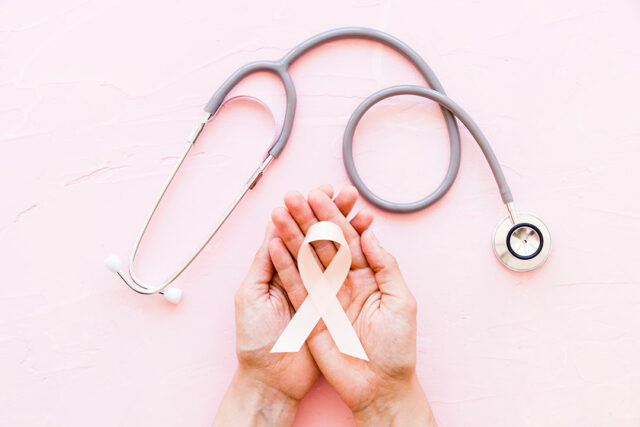
Medicine Cabinet
By Teodoro B. Padilla

Women can take steps to lower their risk of breast cancer, the most common cancer in women in the Philippines. A discussion of these steps is most fitting as the world celebrates Breast Cancer Awareness Month, held in October every year, to promote screening and prevention of the disease.
Among the “whats” one can do to lower one’s risk include maintaining a healthy weight; being physically active; not drinking alcohol or drinking it in moderation; and breastfeeding their children.
More than half (53%) of breast cancer cases in the country are diagnosed in their advanced stages, while only 2% to 3% of cases are diagnosed in Stage I. Promoting health literacy and implementing an organized nationwide breast cancer screening program are among the key steps needed to catch breast cancer cases early and increase the chance of successful treatment.
Adult women of all ages are encouraged to perform breast self-examination (BSE) at least once a month. The ICANSERVE Foundation in partnership with Novartis has developed a series of animated videos in Tagalog and Cebuano on how to do BSE, which are available for free on the Foundation’s YouTube channel.
Warning signs of breast cancer that women should look out for include a new lump in the breast or underarm (armpit); thickening or swelling of part of the breast; irritation or dimpling of breast skin; redness or flaky skin in the nipple area or the breast; pulling in of the nipple or pain in the nipple area; nipple discharge other than breast milk, including blood; any change in the size or the shape of the breast; and pain in any area of the breast.
The Philippine Obstetrical and Gynecological Society recommends a clinical breast examination (CBE) performed by a healthcare professional every one to three years for women 25-39 years old, and annually for women 40 years old and older.
The most important screening test for breast cancer is a mammogram (x-ray of the breast). Mammograms are the best way to find breast cancer early, when it is easier to treat and before it is big enough to feel or cause symptoms. Regular mammograms can find breast cancer early, sometimes up to three years before it can be felt. Having regular mammograms can lower the risk of dying from breast cancer, according to the US Centers for Disease Control and Prevention (CDC).
The United States Preventive Services Task Force (USPSTF) recommends that women who are 50 to 74 years old and are at average risk for breast cancer get a mammogram every two years. Women who are 40 to 49 years old should talk to their doctor or other healthcare provider about when to start and how often to get a mammogram.
Regular screening for breast cancer is particularly important for high-risk women. These include women who are older than age 50; started menstrual periods before age 12 and started menopause after age 55; have dense breasts (more connective tissue than fatty tissue), which can sometimes make it hard to see tumors on a mammogram; have personal history of breast cancer or certain non-cancerous breast diseases; have family history of breast or ovarian cancer; and had radiation therapy to the chest or breasts.
When fully implemented, the Universal Health Care (UHC) Act and National Integrated Cancer Control Act (NICCA) provide enabling platforms to promote early diagnosis by operationalizing an organized nationwide screening and broadening access to treatment. High out-of-pocket costs of care, a major access barrier, can be addressed by NICCA-mandated financial support mechanisms such as the Cancer Assistance Fund (CAF), Cancer and Supportive-Palliative Medicines Access Program (CSPMAP), and Medical Assistance to Indigent Patients (MAIP) Program.
On health literacy, the “Think Pink: Health Reporting on Breast Cancer in the Philippines” workshop series held recently aimed to raise awareness and enhance reporting about the disease. The workshop gathered more than 50 journalists from across the country in a discussion with medical experts and the breast cancer community. Their stories, being generated as an offshoot of the workshop series, put spotlight on the need for early detection as well as hope even for patients diagnosed in their advanced stages.
Teodoro B. Padilla is the executive director of Pharmaceutical and Healthcare Association of the Philippines (PHAP). PHAP represents the biopharmaceutical medicines and vaccines industry in the country. Its members are in the forefront of research and development efforts for COVID-19 and other diseases that affect Filipinos.